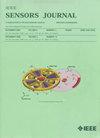Robust Estimation and Sensor Fault Management Using Probabilistic Voting Algorithm in UAVs
IF 4.3
2区 综合性期刊
Q1 ENGINEERING, ELECTRICAL & ELECTRONIC
引用次数: 0
Abstract
This article presents a fault-tolerant estimator using a probabilistic voting algorithm (PVA) for the safe maneuvering of multirotor unmanned aerial vehicles (UAVs). UAVs are widely utilized in numerous applications, but any malfunction can lead to secondary accidents. The safety and robustness of the UAV component should be guaranteed to minimize fatal accidents during flight. A flight control computer (FCC) with various sensors is one of the most important components, the robustness of which should be guaranteed. In this article, a hybrid FCC including both hardware and software is developed to improve the robustness and safety of the FCC by both hardware and analytical redundancy. Triple modular FCCs for hardware redundancy are utilized to deal with various faults. The PVA is designed to estimate the reference state of the UAV and make the consensus to select the fault-free FCC by the fault probabilities of each state measurement from the FCC estimators. Moreover, multiplexers (MUXs) switch the FCC channel based on the consensus result to compensate for faults. Then, the fault identification algorithm identifies the source of the estimator faults by information on the residual signals between the estimated states and the sensor measurements. The PVA is validated through numerical simulations and experiments. This method achieves approximately a 93% correct detection rate and a fault detection time of less than 1 s, which is sufficient to maintain the dynamic responses of the UAV. These results show that the PVA improves and ensures the safe maneuvering of the UAV in various fault situations.基于概率投票算法的无人机鲁棒估计与传感器故障管理
提出了一种基于概率投票算法的多旋翼无人机安全机动容错估计器。无人机被广泛应用于许多领域,但任何故障都可能导致二次事故。要保证无人机部件的安全性和鲁棒性,最大限度地减少飞行中的致命事故。由各种传感器组成的飞控计算机是飞控系统的重要组成部分之一,必须保证其鲁棒性。本文提出了一种包括硬件和软件的混合FCC,通过硬件和分析冗余来提高FCC的鲁棒性和安全性。采用硬件冗余的三模块fc来处理各种故障。PVA对无人机的参考状态进行估计,并根据各状态测量值的故障概率达成一致选择无故障的FCC。此外,多路复用器(mux)根据一致结果切换FCC信道以补偿故障。然后,故障识别算法通过估计状态与传感器测量值之间的残差信号信息来识别估计器故障的来源。通过数值模拟和实验验证了PVA的有效性。该方法的检测正确率约为93%,故障检测时间小于1 s,足以保持无人机的动态响应。结果表明,PVA提高了无人机在各种故障情况下的安全机动性能。
本文章由计算机程序翻译,如有差异,请以英文原文为准。
求助全文
约1分钟内获得全文
求助全文
来源期刊

IEEE Sensors Journal
工程技术-工程:电子与电气
CiteScore
7.70
自引率
14.00%
发文量
2058
审稿时长
5.2 months
期刊介绍:
The fields of interest of the IEEE Sensors Journal are the theory, design , fabrication, manufacturing and applications of devices for sensing and transducing physical, chemical and biological phenomena, with emphasis on the electronics and physics aspect of sensors and integrated sensors-actuators. IEEE Sensors Journal deals with the following:
-Sensor Phenomenology, Modelling, and Evaluation
-Sensor Materials, Processing, and Fabrication
-Chemical and Gas Sensors
-Microfluidics and Biosensors
-Optical Sensors
-Physical Sensors: Temperature, Mechanical, Magnetic, and others
-Acoustic and Ultrasonic Sensors
-Sensor Packaging
-Sensor Networks
-Sensor Applications
-Sensor Systems: Signals, Processing, and Interfaces
-Actuators and Sensor Power Systems
-Sensor Signal Processing for high precision and stability (amplification, filtering, linearization, modulation/demodulation) and under harsh conditions (EMC, radiation, humidity, temperature); energy consumption/harvesting
-Sensor Data Processing (soft computing with sensor data, e.g., pattern recognition, machine learning, evolutionary computation; sensor data fusion, processing of wave e.g., electromagnetic and acoustic; and non-wave, e.g., chemical, gravity, particle, thermal, radiative and non-radiative sensor data, detection, estimation and classification based on sensor data)
-Sensors in Industrial Practice
 求助内容:
求助内容: 应助结果提醒方式:
应助结果提醒方式:


